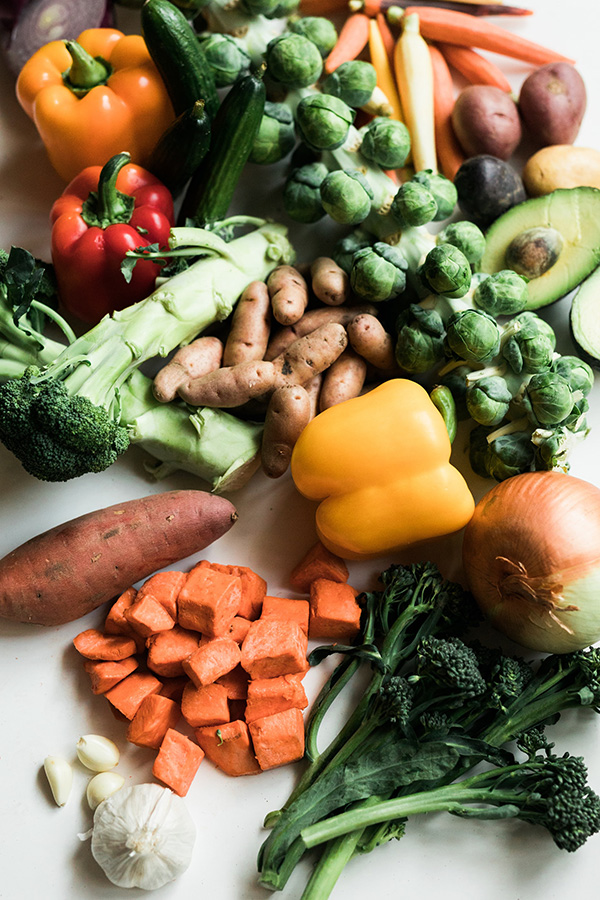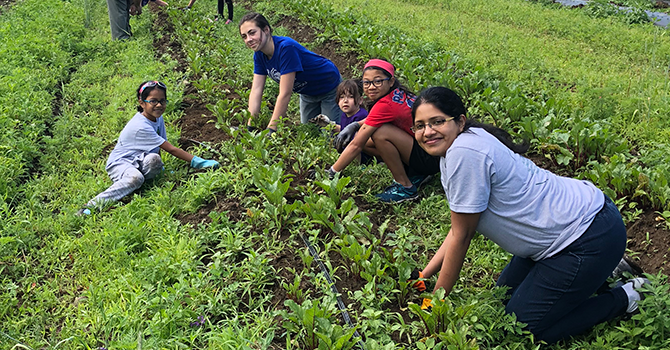
Common Fire: Lives of Commitment in a Complex World
A landmark study that reveals how we become committed to the common good and sustain such commitments in a changing world.

“To choose simplicity is to live into complicated questions without easy answers, taking one step that may make another step possible.”
— Sharon Daloz Parks
Thoughts and questions to help you consider this practice
In the face of great economic and environmental challenges, the Christian practice of household economics calls on us to manage our private homes for the well-being and livelihood of this planet we all share.
Our households are anchoring places that define our basic ways of life. Most of us call our primary dwelling place "home." Does the word "home" bring to mind your town or region, or your own house or apartment? Where does our planet home fit in? Do we defend the earth with the same vigor we may defend the security of our private homes?
The term "economics" suggests money, markets, investment, e-commerce, taxes, profit, etc. What are the implications for our understanding of "economy," however, when we recognize that the words "economy," "ecology," and "ecumenical" are all rooted in the Greek word oikos, which means "household"? At what points do we try to resist the pervasive influence of the marketplace in our daily lives?
Do you find yourself working more and faster to secure a sense of belonging and well-being? Do you often feel bloated with cumber as you try to manage all the stuff that clutters your daily life? Many of us feel alone in our busyness. How might it relieve some of our fear and guilt to talk openly about these issues within the household of faith? Does your faith community challenge you to reflect deeply on the ways you spend your time and money?
What happens when we link faith and money matters in the church? Would you welcome mutual accountability on these matters, or do you fear that this could lead into difficult or uncomfortable areas?
Do we sometimes act as if our economic lives are separate from our "spiritual" lives? What does the Christian view of creation and incarnation — that God is "home" here in the material world, dwelling among us — suggest about this supposed dichotomy? How do efforts to keep faith separate from economic life create divisions in our communities, such as those that can arise between businesspeople and environmentalists, or between the rich and the poor?
The practice of simplicity can foster a sense of right proportion and right relation within the dynamic and interdependent household of the whole earth. In what ways does this practice appeal to you, and in what ways are you wary of it? Have you noticed that practicing simplicity rarely seems simple?
Economic life is dramatically driven by technological development. How might a given technology affect both the natural world and our way of living together as human beings? How should the choices our society makes about right technology take into account questions of right labor — employee wages and benefits, layoffs, immigrant exploitation, industrial toxins? Within this context, what does it mean for Christians to live as signs of the commonwealth of God?
"Mutual aid" means not only helping each other in need, but also helping each other break silence about money. How can our faith communities help us discern how well our economic witness corresponds to the ancient prayer of Christian asceticism, "God, make us truly alive"? How can we help each other find ways to reorder our use of time and money? How would our daily lives be changed by our immersion in a spirituality of "abundance and enough-ness"?
"Do not be conformed to this world. But be transformed by the renewing of your minds, so that you may discern what is the will of God — what is good and acceptable and perfect."
— Romans 12:2
"To my mind, the idea that doing dishes is unpleasant can occur only when you aren't doing them. Once you are standing in front of the sink with your sleeves rolled up, and your hands in the warm water, it is really quite pleasant. I enjoy taking my time with each dish, being fully aware of the dish, the water, and each movement of my hands. I know that if I hurry in order to eat dessert sooner, the time of washing dishes will be unpleasant and not worth living. That would be a pity, for each minute, each second of life is a miracle. The dishes themselves and the fact that I am here washing them are miracles! In this light, no boundary exists between the sacred and the profane. I must confess it takes me a bit longer to do the dishes, but I live fully in every moment, and I am happy."
— Thich Nhat Han, Peace Is Every Step: The Path of Mindfulness in Everyday Life


Faith and Money Network offers online study groups, workshops, money mentoring, and more in an attempt to help individuals explore, understand, and address issues of money and faith in their own lives, as well as in their families, political systems, institutions, and world.
Jesus said to his disciples, "Therefore I tell you, do not worry about your life, what you will eat, or about your body, what you will wear. For life is more than food, and the body more than clothing...Instead, strive for God's kingdom, and these things will be given to you as well."
— Luke 12:22-23, 31
Leader: Anchor us, O God,
When the swirl of living threatens to undo our being.
People: God, make us truly alive.
Leader: Anchor us, O God,
When making our livelihood threatens to smother our liveliness.
People: God, make us truly alive.
Leader: Anchor us, O God,
When a driving pulse of technology threatens to drive us away from you.
People: God, make us truly alive.
Leader: Anchor us, O God,
When concern about money threatens to obscure our true security.
People: God, make us truly alive.
Leader: Anchor us, O God,
When we forget that you are home.
People: God, make us truly alive.
— Lani Wright, Cottage Grove, Oregon


"Jesus lives again, earth can breathe again, pass the Word around: loaves abound!"
Text: Fred Kaan
"...the good seed on the land,
But it is fed and watered by God's almighty hand..."
Text: Matthias Claudius
"...hungry for a word of peace
...hungry for a world released
...hungry that the hunger cease..."
Text and music: Ray Makeever
"God, whose giving knows no ending from your rich and endless store..."
Text: Robert L. Edwards
Text copyright (c) 1961, renewal 1989 The Hymn Society
"Take my life and let it be consecrated, Lord, to thee..."
Text: Frances Havergal

A landmark study that reveals how we become committed to the common good and sustain such commitments in a changing world.

Tracing back the layers of distribution, commerce, and production involved in everyday consumer goods, Stuff is an engaging and fact-packed look at the people and places that are affected every time you sip your coffee, tie your shoes, click your mouse, step on the gas, or read a book.

This pathbreaking book explains why, contrary to all expectations, Americans are working harder than ever.

The absence of God in economic matters is viewed as necessary to the great advances in modern economy. The difficulty with modern market economies, however, is that human livelihood is also left out of the theory and practice of the market economy.

A revised and updated edition of the manifesto that shows how simplicity is not merely having less stress and more leisure but an essential spiritual discipline for the health of our soul.

This award-winning film by Robert Benton is set in a small Texas town during the Great Depression. A widow with two young children struggles to save her family and farm by expanding her household to include a blind war veteran and a Black man who knows how to raise cotton.

Peter G. Brown and Geoffrey Garver use the core Quaker principle of “right relationship” — interacting in a way that is respectful to all and that aids the common good — as the foundation for a new economic model.

McKibben offers a realistic, if challenging, scenario for a hopeful future. Deep Economy makes the compelling case that the more we nurture the essential humanity of our economy, the more we will recapture our own.

For anyone feeling too busy or too stressed seeking to simplify their life, this guide maps out several routes to simplicity. For over 300 years, the Quakers have lived out of a spiritual center in a way of life they call “plain living.” Their accumulated experiences and distilled wisdom have much to offer anyone seeking greater simplicity today.

This issue of “Christian Reflection: A Series in Faith and Ethics” features a collection of essays on the topic of consumerism. (c) 2003 The Center for Christian Ethics at Baylor University. All rights reserved. Permission is granted to reproduce these materials for personal or group study.
The author suggests ways that local congregations can make cups of coffee part of God’s economy.
This is the study guide to “Money Enough: Everyday Practices for Living Faithfully in the Global Economy” by Douglas A. Hicks.
This is a companion study guide to the “Consumerism” issue of “Christian Reflection: A Series in Faith and Ethics.” (c) 2003 The Center for Christian Ethics at Baylor University. All rights reserved. Permission is granted to reproduce these materials for personal or group study.